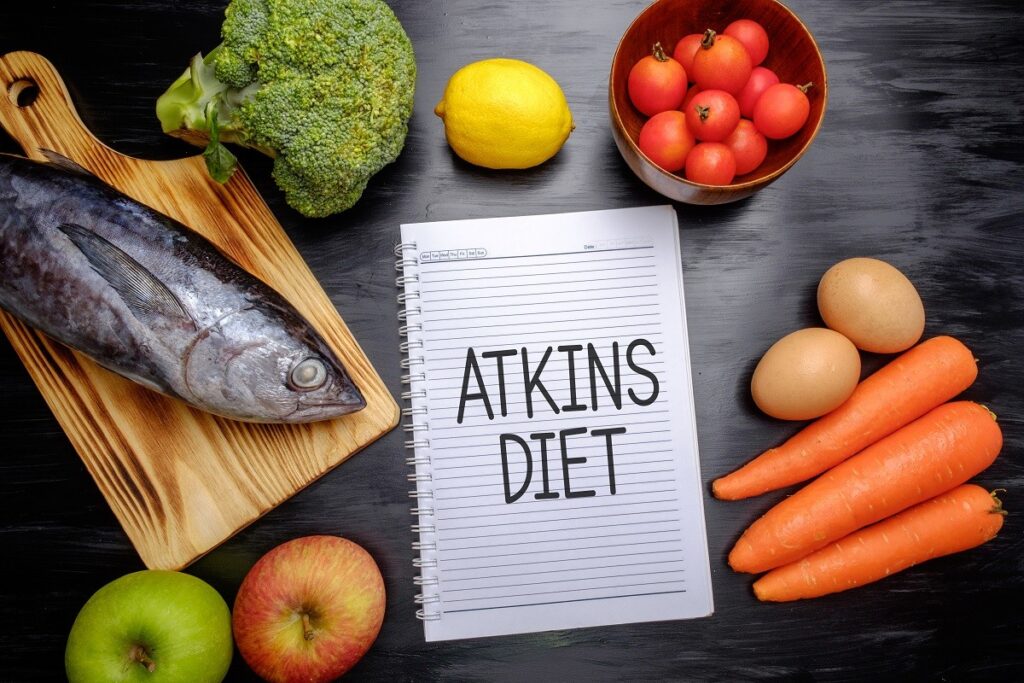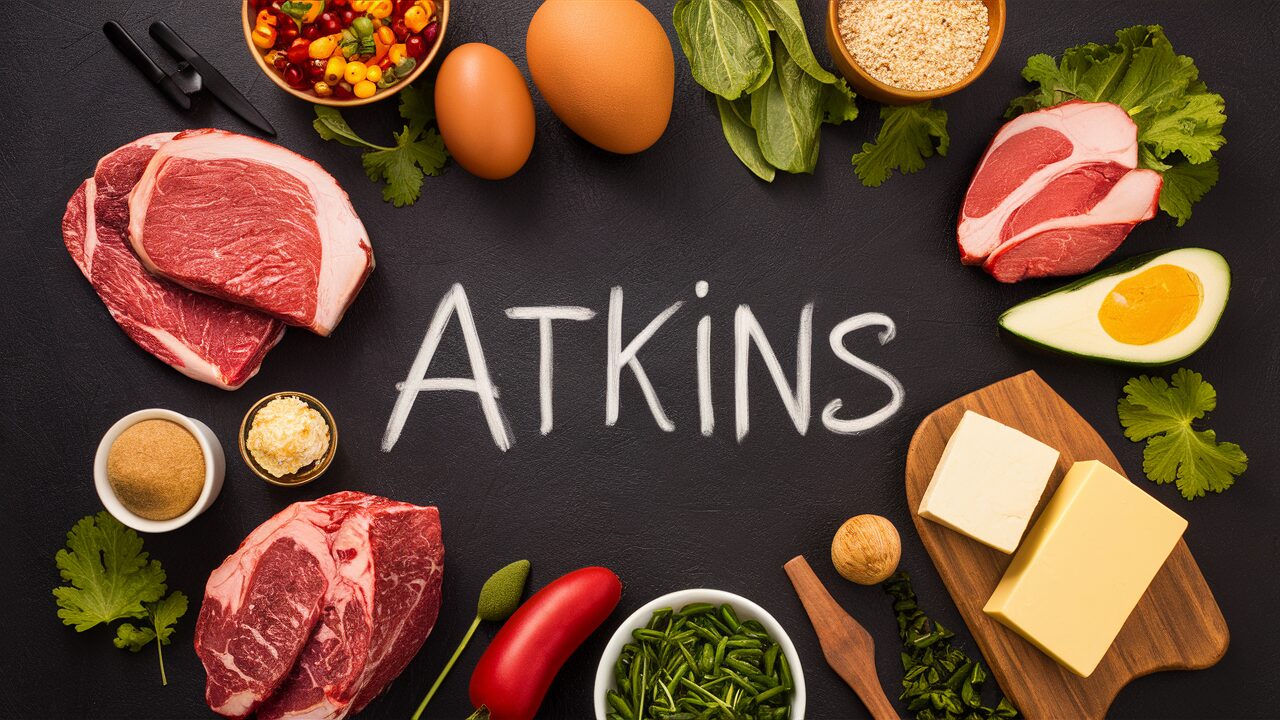In the ever-evolving world of weight loss trends, the Atkins Diet stands as one of the most well-known — and most controversial — low-carb diets. Popularized in the 1970s by Dr. Robert Atkins, this dietary approach has helped millions shed pounds by focusing on carbohydrate restriction rather than calorie counting.
But is it right for everyone? Let’s explore how the Atkins Diet works, its potential benefits, and the risks you should be aware of.
🔍 What Is the Atkins Diet?
The Atkins Diet is a low-carbohydrate, high-protein, high-fat eating plan designed to promote weight loss and improve metabolic health. It shifts the body’s metabolism from burning carbs to burning fat — a state known as ketosis (in its early stages).
The diet is divided into four phases, gradually increasing carb intake as you progress:
📘 The 4 Phases of the Atkins Diet
Phase 1: Induction
- Duration: 2+ weeks
- Carb limit: 20–25 grams of net carbs per day
- Focus on protein, healthy fats, and low-carb vegetables
- Goal: Jump-start fat burning by entering ketosis
Phase 2: Balancing
- Gradually reintroduce more carbs (25–50g net carbs/day)
- Include more low-carb fruits, nuts, and seeds
- Goal: Continue weight loss while identifying carb tolerance
Phase 3: Pre-Maintenance
- Carbs increase to 50–80g/day
- Weight loss slows as you approach your goal
- Focus on maintaining new weight while increasing food variety
Phase 4: Lifetime Maintenance
- Carbs stabilize between 80–100g/day, depending on your metabolism
- Maintain weight with a balanced, low-sugar, low-refined-carb diet
- Long-term lifestyle phase
✅ Benefits of the Atkins Diet
⚖️ 1. Effective Weight Loss
The Atkins Diet helps reduce appetite and calorie intake without conscious restriction. Many people lose weight quickly, especially during the induction phase.
🩺 2. Improved Blood Sugar Control
Limiting carbs can stabilize blood sugar and insulin levels, especially beneficial for people with type 2 diabetes or insulin resistance.
💪 3. Preservation of Muscle Mass
Unlike many low-calorie diets, Atkins emphasizes adequate protein, helping maintain lean body mass during weight loss.
❤️ 4. Potential Heart Health Benefits
Some studies show improvements in HDL (good cholesterol) and triglyceride levels, though results can vary depending on the type of fats consumed.
🧠 5. Reduced Sugar and Refined Carb Cravings
Cutting sugar and refined carbs can reduce cravings and help break unhealthy food habits.
⚠️ Risks and Considerations
While many experience positive results on Atkins, it may not be ideal for everyone. Here are some concerns to consider:
🚫 1. Nutrient Deficiencies
Eliminating fruits, whole grains, and legumes can lead to low intake of fiber, vitamins, and minerals — especially in the early phases.
🌪️ 2. Initial Side Effects (The “Keto Flu”)
During the first week, some experience fatigue, headaches, dizziness, irritability, and constipation as the body adjusts to burning fat for fuel.
🍞 3. Hard to Sustain Long-Term
Many find it difficult to maintain the strict carb restrictions over time, leading to weight regain.
❤️ 4. Possible Increase in LDL Cholesterol
In some individuals, eating more saturated fats can lead to a rise in LDL (bad cholesterol) — a concern for heart health.
🧪 5. Not Recommended for Everyone
People with kidney disease, liver disorders, or those who are pregnant should avoid the diet unless supervised by a medical professional.
🥦 What Can You Eat on Atkins?
Foods encouraged:
- Meats (chicken, beef, pork)
- Eggs
- Fish and seafood
- Full-fat dairy
- Leafy greens and low-carb vegetables
- Nuts and seeds
- Healthy oils (olive, avocado, coconut)
Foods to limit or avoid:
- Sugar and sweets
- Bread, pasta, rice
- Starchy vegetables (potatoes, corn)
- Most fruits (in early phases)
- Processed snack foods
Is Atkins Right for You?

The Atkins Diet can be a powerful tool for weight loss and blood sugar management, especially in the short term. Its emphasis on real, whole foods and cutting sugar makes it a healthier low-carb option than many fad diets.
However, it requires discipline, nutritional knowledge, and individual customization to be safe and sustainable. If you have preexisting conditions or are unsure about the dietary changes, it’s wise to consult a healthcare provider before starting.
Have you tried the Atkins Diet?
Share your experience or tips in the comments — your story might inspire someone else!

